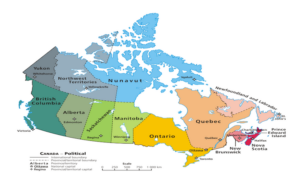The Canadian Political Landscape: A Critical Look at Power Dynamics
In the politically charged environment of Canada, recent developments surrounding Prime Minister Justin Trudeau’s resignation have sparked considerable debate. Here at Extreme Investor Network, we delve deeper into the implications of this shift and its broader ramifications on both Canadian politics and international relations.
The Role of Parliamentary Systems
It’s important to understand the structure of Canada’s parliamentary system. Unlike in presidential democracies, Canadian citizens do not vote directly for their Prime Minister. Instead, they elect representatives within parliamentary constituencies, and the leader of the party that holds the most seats typically assumes the role of Prime Minister. This can lead to a situation where party politics, rather than popular opinion, drive leadership changes.
This lack of direct voter power raises questions around accountability and public sentiment, especially as we’re witnessing shifts in party leadership that may not align with the wishes of the electorate. Trudeau’s departure has been framed by many as a necessary response to criticisms surrounding governance. However, it’s crucial to recognize that the underlying issues may extend beyond just one individual.
Speculations About Canada’s Future
The whimsical notion put forward by former U.S. President Donald Trump, suggesting that Canada could become the 51st state, has been dismissed as absurd by many observers. Yet, thought-provoking alternatives have come to light that invite us to think critically about Canada’s ties with the U.S. Some suggest that regions like California, Oregon, Washington, and New England should consider joining Canada—an idea that emphasizes regional collaboration over national limitations. This notion underscores a growing sentiment about the future of governance and autonomy in North America.
Border Solutions and Healthcare Dilemmas
Amid the ongoing migrant challenges, an unconventional proposal has emerged: creating an easement to Saskatchewan allowing migrants to access Canadian healthcare options. Proponents argue that this could alleviate some of the burdens faced by public health systems, particularly when contrasted with long waiting lists reported by Canadians for essential services.
This perspective, however, brings ethical dilemmas into focus. While ensuring healthcare access for all is a noble pursuit, it also raises questions about resource allocation and national identity. What happens to Canadian values and the integrity of its healthcare system when we consider such radical cross-border solutions?
The Future of Canadian Leadership
The narrative around Trudeau’s resignation suggests a deeper struggle within the Liberal Party and the overarching influence of global organizations like Davos. Critics argue that the party’s issues stem from a far-left agenda rather than a singular figure. The potential rise of figures like Gavin Newsom—should he extend his political reach to Canada—could indicate a shift towards more centralized, perhaps internationalized, governance approaches.
As we unpack these developments, it’s essential to consider the broader implications for Canada’s political integrity and its citizens’ autonomy. Will Canada continue to shape its own path, or are we witnessing the onset of a new political era influenced by external pressures and agendas?
Conclusion: A Call to Vigilance
At Extreme Investor Network, we encourage our readers to remain vigilant as these political narratives unfold. The dynamics of leadership, the impact of regional collaborations, and the role of healthcare and immigration policy are intricately interlinked. As Canadians navigate this tumultuous political landscape, understanding these issues will be key to fostering a healthy democracy that truly reflects the will of the people.
Stay tuned for more insights from us as we analyze how these developments could impact not only Canada but the future of North American relations as a whole. Your voice matters in this discussion—let us know your thoughts!

